As a librarian in Leipzig might say, “Ein gutes buch lesen.” This is to say, “Read a good book.”
Germans have been known to write one or two of them over the course of their recorded history. Indeed, German literature has been with us a very long time. From the Medieval ages, stories have been written down and shared and have stirred the minds of readers.
From the Hildebrandslied (the earliest poetic text in German, written in the 830s) to Jenny Erpenbeck’s recent novel Gehen, ging, gregangen; from Thomas Mann’s The Magic Mountain (arguably the most influential German literary work of the 20th century) to the philosophical writings of Immanuel Kant (one of the central figures during the Age of Enlightenment) Germans have been pouring out their thoughts on paper for generations.
Clearly, we all could learn a thing or two from the Germans. That said, here are a handful of books by some of Germany’s finest writers. “Viel Spaß,” that librarian in Germany might say. “Enjoy.”
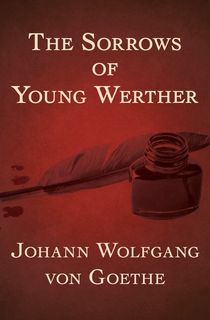
The Sorrows of Young Werther
One will not be sorrowful upon reading this gargantuan work of German literature. Published in 1774, Goethe was 24 when he sat down to write this epistolary novel. He wrote it in less than six weeks and it placed him, upon publication, among the great literary celebrities of the age, not just in Germany, but the known world. Napoleon Bonaparte considered it one of the greatest works of European literature. He carried the book with him on his campaign to Egypt. The overnight success caused “Werther Fever.” Young men began dressing like Werther did in the novel.
The novel is a series of letters written by Werther. Werther is a young artist. He’s sensitive and passionate. He gives an account, to his friend Wilhelm, of his stay in a small village. Peasant life pleases him. It’s there that he meets Charlotte. Charlotte is a beautiful lass. She’s caring for her family now that her mother is dead. Werther falls madly in love with Charlotte. He knows, however, she’s engaged to another. Oh, sweet youth. Oh, unrequited love. The sadness and agony of such things are too much to bear for young Werther.
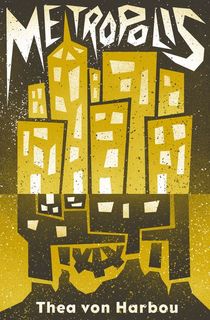
Metropolis
Shakespearean in many ways, Thea von Harbou’s 1925 science fiction novel, Metropolis, is set in a technologically-advanced city. It is so because of the hard and demeaning work done by an exploited class of laborers who live underground. They do not much partake in the wondrous world above them. It is in this wondrous world that Freder lives. He’s a part of the city’s aristocracy but he falls in love with Maria, a girl from the underground. Crises form.
Before the novel was even finished, a movie was being made based on the book. The movie is considered one of the most influential films ever created. The screenplay was written by Thea von Harbou in collaboration with her husband, the pioneering film director Fritz Lang. H.G. Wells didn’t like it - he accused it of "foolishness, cliché, platitude, and muddlement about mechanical progress and progress in general,” perhaps because he, himself, didn’t write it.
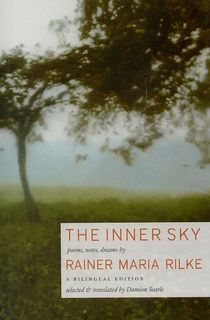
The Inner Sky
To love poetry is to love Rilke. One of the most lyrically intense German-language poets, his work might be described as “mystical,” words strung together that evoke disbelief, solitude, anxiety, fear, and rapture in the face of the ineffable nature of being a human with only so many hours on earth.
Perhaps his greatest known contribution to literature is his Letters to a Young Poet, published after his death (he died at the age of 51 in 1926). The collection of ten letters Rilke wrote to a young officer cadet offered advice on writing and, more importantly, life.
The Inner Sky is a new selection of poems and prose by Rilke, translated by Damion Searls. Searls’ selection of texts clusters around a handful of related images and ideas, such as birds and trees, giving and receiving, working and waiting. How do we relate to the outer world through the inner worlds of our imaginations?
Related: 11 Poetry Books That Even Non-Poetry Readers Will Enjoy
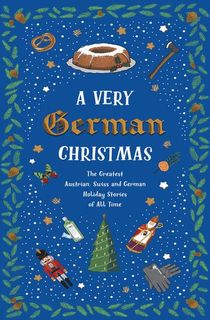
A Very German Christmas
A very German Christmas is having stockings filled on December 6, the Christmas tree is put up on Christmas Eve, one’s sweet tooth is swollen with stollen, and stories are read around the fire while sipping feuerzangenbowle.
Germans don’t have the corner market on Christmas, though they have Christmas markets like no one else. At those markets, one might find A Very German Christmas. The collection brings together new and classic Christmas literature from Germany, Austria, and Switzerland. Included are works by German literature heavyweights (nearly as heavy as Santa Claus) such as Johann Wolfgang von Goethe, Heinrich Heine, Rainer Maria Rilke, and Arthur Schnitzler. Newer tales include works by Peter Stamm and Martin Suter. The book also includes the first published English translation of Joseph Roth’s story “Christmas in Cochnchina.”
Related: The 12 Best Christmas Books to Read All Season Long
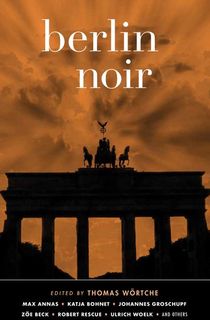
Berlin Noir
Noir: A genre of crime fiction characterized by cynicism, fatalism, and moral ambiguity. Arguably there might be no city more suited for that than Berlin. With Berlin Noir, editor Thomas Wörtche brings together 13 powerful short stories, fueled by history, geography, and Germanic literary traditions.
The book includes works by Zoë Beck, Ulrich Woelk, Susanne Saygin, Robert Rescue, Johannes Groschupf, Ute Cohen, Katja Bohnet, Matthias Wittekindt, Kai Hensel, Miron Zownir, Max Annas, Michael Wuliger, and Rob Alef, all translated from German by Lucy Jones.
As Wörtche himself says, “What’s left is history. It is omnipresent in Berlin at every turn; the city is saturated in a history full of blood, violence, and death.” These stories bring all that to the fore.
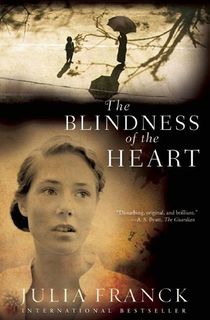
The Blindness of the Heart
Julia Franck is an award-winning author whose works have now been translated into over 35 languages. The Blindness of the Heart was her first novel translated into English. Published in 2010, it won the German Book Prize.
What was life like in early-20th-century Germany? The novel is revealing, breathtaking, and heartbreaking, spanning two world wars and several generations of one family. In the opening scene, a woman abandons her son at a train station in 1945. She never returns for him.
The story goes back in time to the woman’s childhood during WWI. Her father is sent to the Eastern Front. Her Jewish mother begins unraveling mentally. The book asks poignant questions: How much does it cost for one to survive? How deep can one’s love go? What blind spots are there in our lives that can lead to our destruction? What can save any of us?
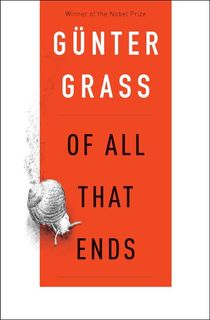
Of All That Ends
On April 13, 2015, in Lübeck Germany, Günter Grass died. He was 87 years old and one of the most revered German writers of the 20th century. The recipient of the 1999 Nobel Prize in Literature, he was a novelist, poet, playwright, illustrator, graphic artist, and sculptor. He had a mind like no other and it finally rested that spring day in 2015.
But not before he reflected on life and, more poignant, on death—something he knew was fast coming for him. Of All that Ends is a series of meditations by Grass on writing, growing old, and living in the world. The pieces are his swan song, brief final musings on what he thought important. Love letters, soliloquies, musings, satire, moments. For isn’t that what life is? Moments tied together.
